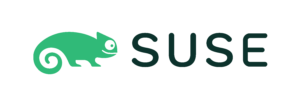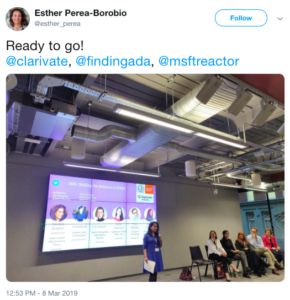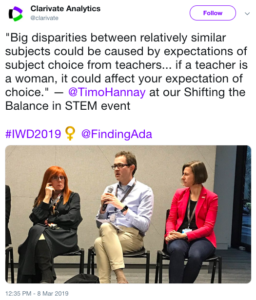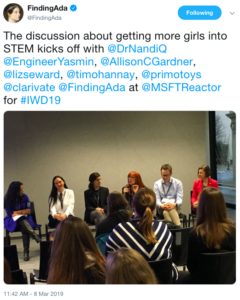By Katerina Arzhayev, SUSE’s Leader of COO Initiatives
At the age of 25, I began managing people for the first time. My new direct report was just starting her full-time career. Seemingly overnight, I became responsible for her professional and personal development. As an individual contributor, my success was based on my performance. Now, my success had a component outside of my control: someone else’s performance. So, I did what anyone would and sought council. The best advice I heard came from a surprising source – my nineteen year old sister who had been people managing for several years as a supervisor in the service industry.
I was told that if I worked hard, studied often and performed well, one day I would manage a team. My sister didn’t get the memo, so three months into her role as a barista she volunteered for a Supervisor role to manage a team of peers – people she laughed and joked with, 17 and 18 year olds she considered friends. Overnight, she became a boss.
“I stopped treating my coworkers as if they are my family” she said. “I forced myself to have the mindset that you’re supposed to have in a service job, which is ‘I am here to work’. I had the mindset, ‘If I don’t like you, I won’t like you’, but I am a shift lead. So even if I am mad, I am still nice to them. I got a more realistic view of my job.”
This important realisation helped her understand that difficult conversations and critical feedback are not personal – not to her, as the giver, and not to the employee, as the receiver. Her communication of company processes and policy did not make her a bad person, no matter the side glances or hushed complaints.
Yet, here I was, afraid of delivering any feedback that could be perceived as negative for fear my relationship with my new team would be damaged. How would my entire personality, built on being liked, handle a potential conflict?
“When I manage, I remove myself from the situation,” she said. “If I am managing someone, I put their needs and perspective first. It’s not about how I feel. If, all of a sudden, they get emotional, I don’t take that personally. I am the manger.”
Being a manager is a different kind of role, she explained, but it is not one where you need to change who you are, or who you want to be.
“I know all the employees on a personal level. I try to customise my approach based on the person, because I know them. I did my research. I am not a people pleaser, but I am not shy. I am not going to stay quiet if someone needs managing.”
Yet, this takes time. Step by step, we can build those relationships. My sister’s rules are simple and by following them, both her managers and her team know who she is and what kind of manager she aspires to be. This may seem like such basic advice, yet all of us need the :
- Don’t talk about me with other employees, or about other employees with me. If you have something to say, talk to me in private, say it to my face. Don’t say it to other people whom it doesn’t concern. Don’t be afraid to address the problem head on, when it arises. Do not let things fester. Avoiding conflict causes longer, and more drawn out, conflict.
- Don’t set me up to say things. Be direct with your questions and comments, instead of leading and secretive. Be upfront, don’t play your cards. Don’t manipulate the situation. Through open conversation and an honest desire to resolve things, we can all move forward.
- Don’t focus on me. Micromanaging sows dissent and turns off my creative desire to be and do better. When I know everything is set, I stop being proactive. I stop demanding more from my team. I am in this role for a reason, I was promoted for a reason, I manage people for a reason. Provide me with support and guidance, but also let me take risks and fail.
Note: The content of this interview was in the scope of primary research conducted by Katerina Arzhayev with the goal of describing the average career journey of women, and identifying and documenting their best practices for managing and being managed.
About SUSE
 SUSE is a global leader in innovative, reliable and enterprise-grade open source solutions. We specialise in Enterprise Linux, Kubernetes Management, and Edge solutions, and collaborate with partners and communities to empower our customers to innovate everywhere – from the data centre, to the cloud, to the edge and beyond. SUSE puts the “open” back in open source, giving customers the agility to tackle innovation challenges today and the freedom to evolve their strategy and solutions tomorrow. Follow SUSE on Twitter or LinkedIn.
SUSE is a global leader in innovative, reliable and enterprise-grade open source solutions. We specialise in Enterprise Linux, Kubernetes Management, and Edge solutions, and collaborate with partners and communities to empower our customers to innovate everywhere – from the data centre, to the cloud, to the edge and beyond. SUSE puts the “open” back in open source, giving customers the agility to tackle innovation challenges today and the freedom to evolve their strategy and solutions tomorrow. Follow SUSE on Twitter or LinkedIn.
 The Finding Ada Network is delighted to announce that we have partnered with J.P. Morgan to offer free mentorship for 50 women in technology in the UK.
The Finding Ada Network is delighted to announce that we have partnered with J.P. Morgan to offer free mentorship for 50 women in technology in the UK.

